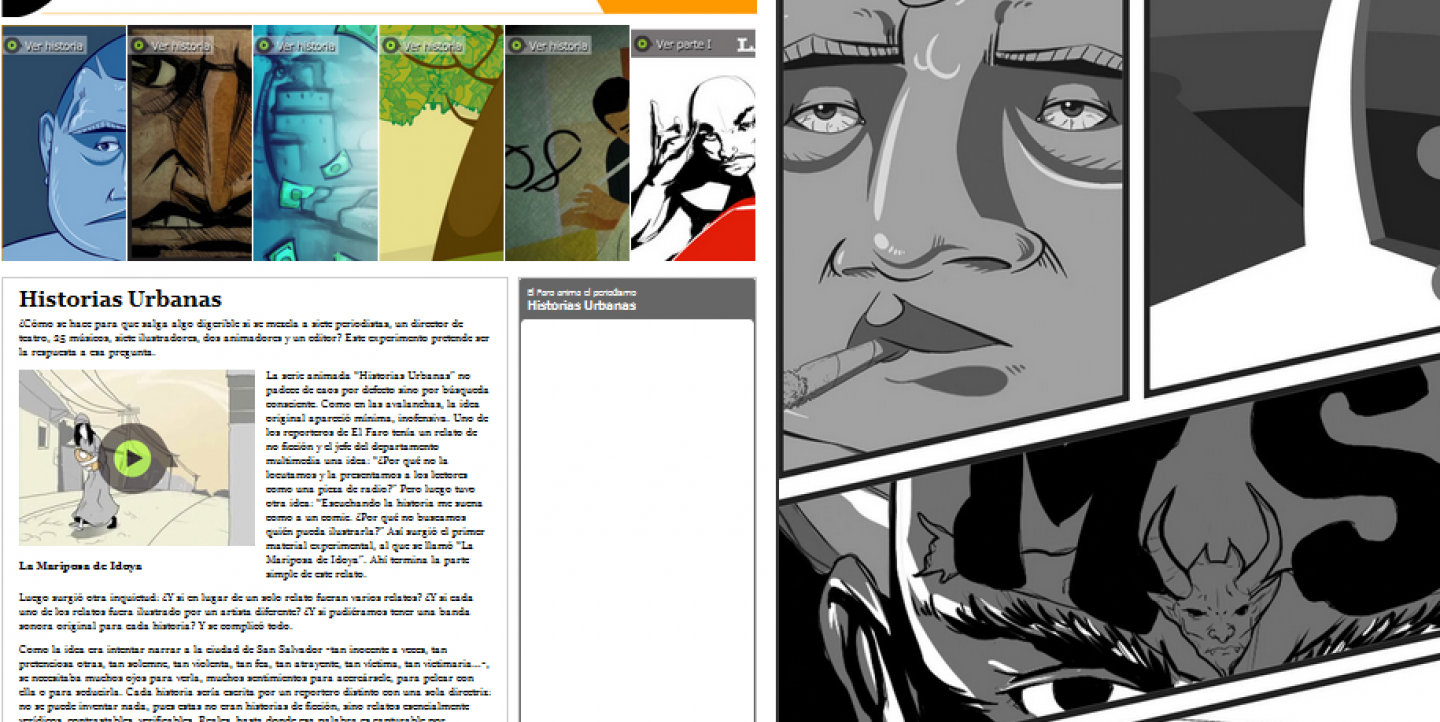Journalists sometimes forget that words are not the only way to tell a story.
Graphic nonfiction is becoming an increasingly important way for journalists and artists to reach audiences and exploit the storytelling capabilities of the web.
One successful project hails from a news website in El Salvador called El Faro, or "the lighthouse" in Spanish, which launched a series of innovative multimedia video cartoons that has captured the attention of locals.
Starting In 2010, the San Salvador-based outfit published seven of these as a series titled Historias Urbanas. These "urban stories" recount actual events from drug runners to corruption in cartoon form via modern-looking clips ranging from about 13 to 20 minutes in length. El Faro has a second series in the works expected to launch late 2012 or early 2013. All of them can be accessed from the website or YouTube.
"I think journalism is missing that spark," Oscar Luna, multimedia coordinator of El Faro told IJNet. "It may be serious journalism, but journalism should not take itself so seriously and work on being more accessible."
Luna believes that the news must be attractive to readers and creating a visual hook helps draw them in. “Whenever we're evaluating stories from journalists they are often just lengthy texts. I always say: 'this could have been done differently,' " he added. The team for the video project involves seven journalists, a theater director, musicians, seven illustrators, two animators and a publisher.
The stories have had a "positive" response, Luna said. However, he believes that "some people still did not understand the concept." Gaining a critical mass of viewers in the Central American country with a population of about 6.1 million is critical.
"Here in El Salvador, Internet access is still very difficult. Only 4.2 percent of Salvadorans have access at home and 16 percent have access at work," Luna said. "So it is aimed at those people, who have the economic potential [to use the Internet] and do not really know about these kinds of stories. All of them are quite sad and a little dark. They show a side of El Salvador that people, here and abroad, do not normally see."

